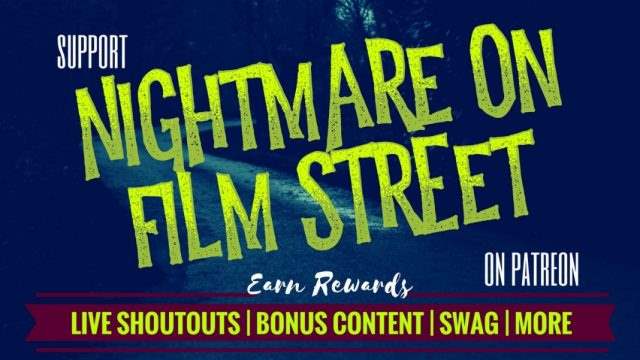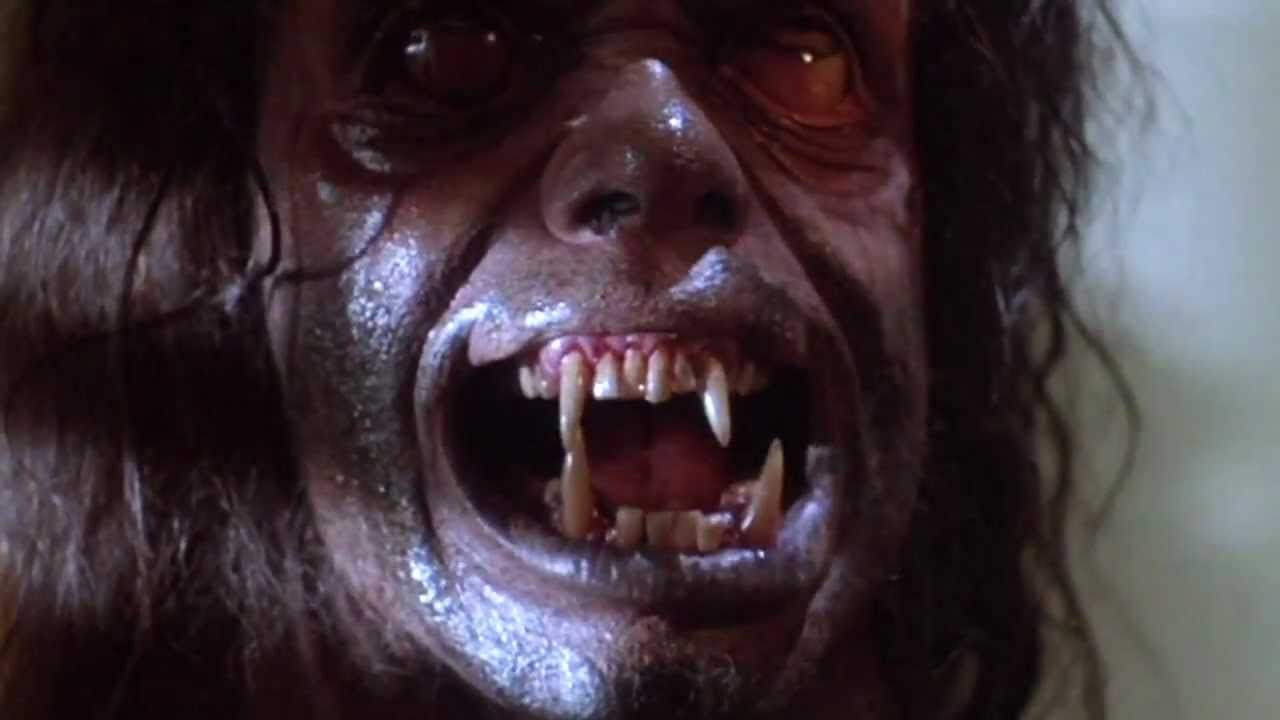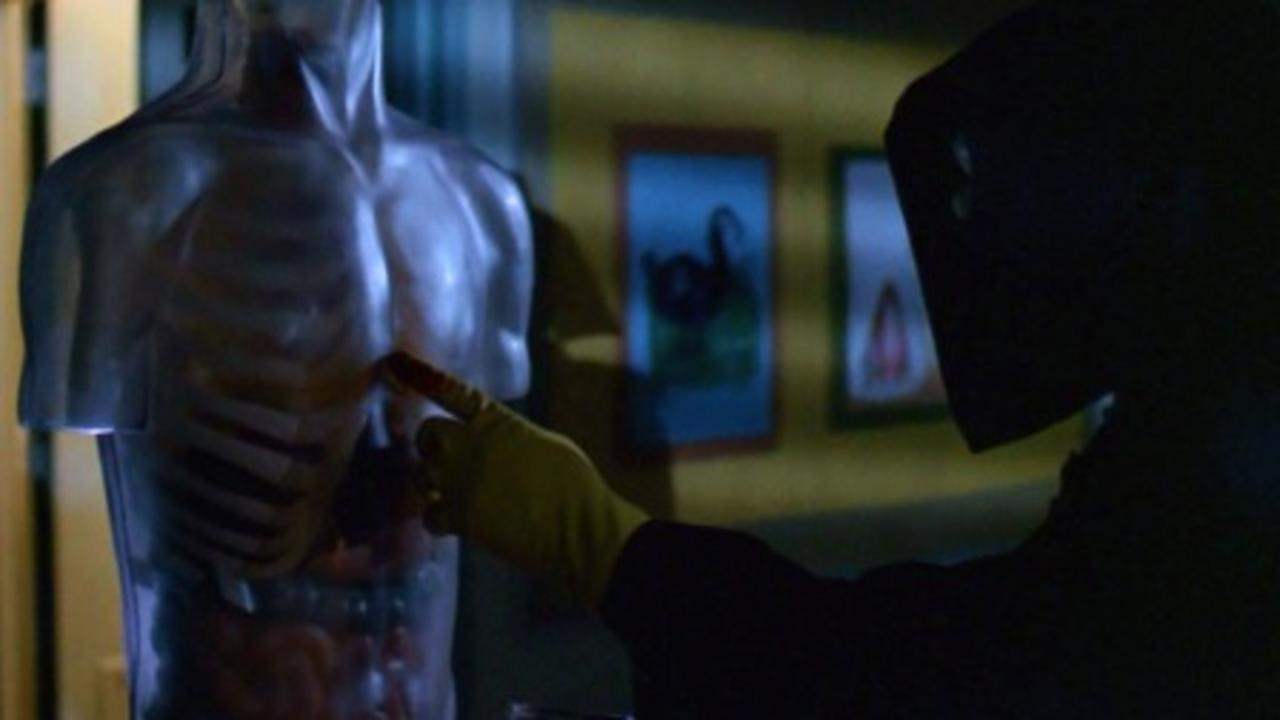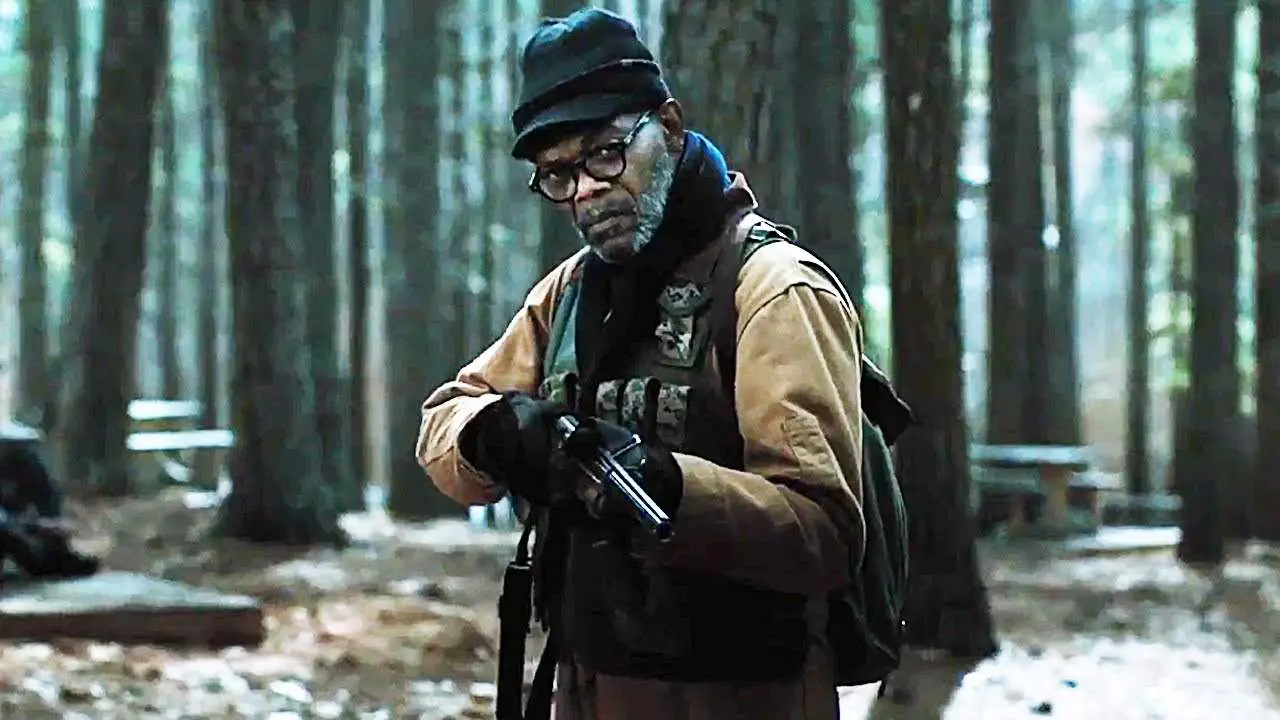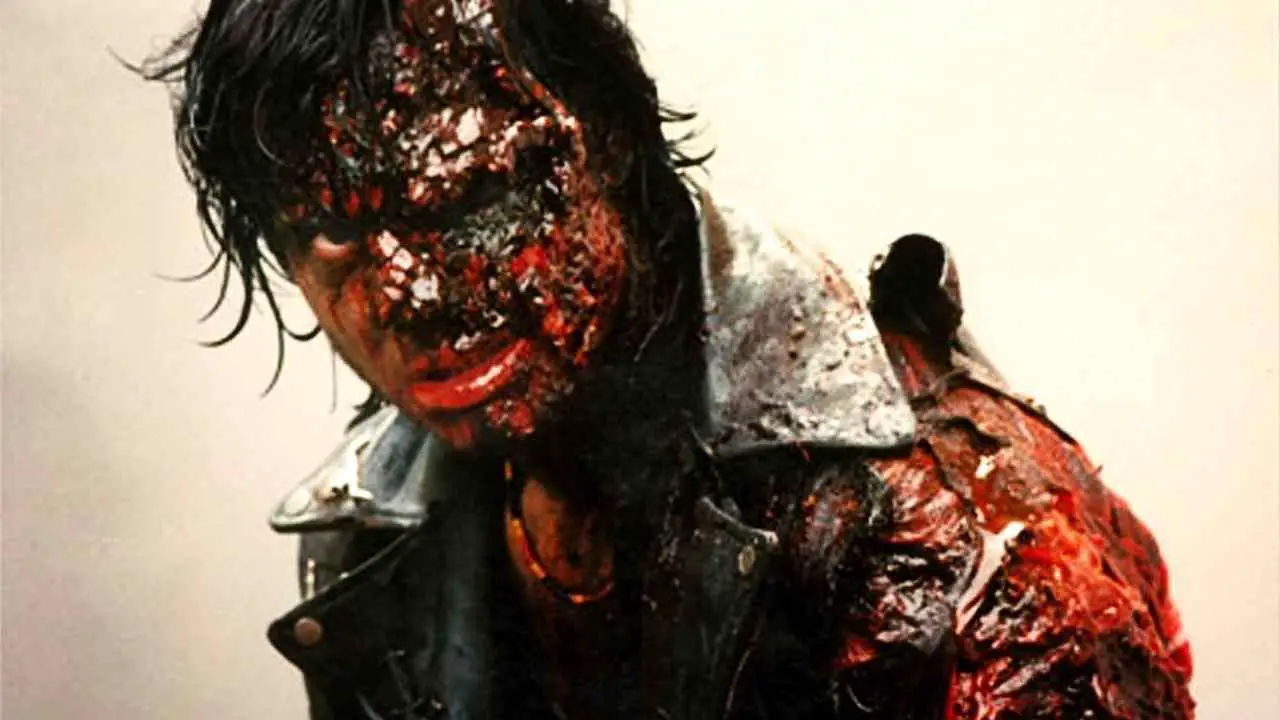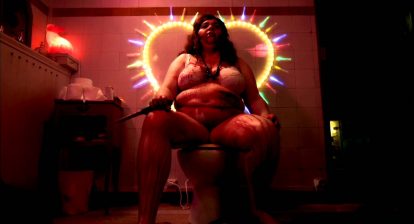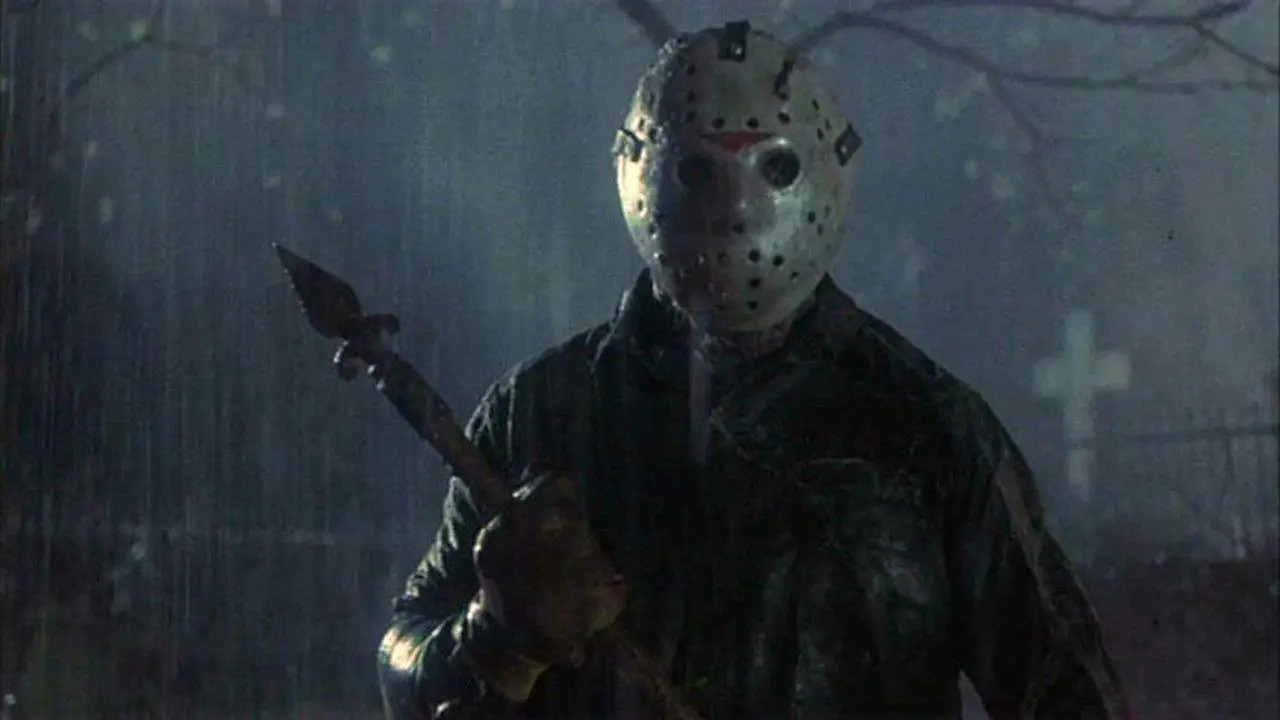In years past, being a horror fan could make you the odd one out in your group of friends, the Internet has opened the door for the wider community to evolve. Nowadays, we have the freedom to share ideas, movie recommendations, reviews, original horror, and so much more across state lines, time zones, and even continents. Each month, Creator Feature sees April Bennett talking to creative members of the horror community, who are busy making content for the rest of us to enjoy, whether it is a podcast, horrifying art, special fx and everything and anything in between. This month, it’s Jon and Kim from Nightmare On Film Street.
For the very first Creator Feature I am delighted to introduce Jon and Kim of the Nightmare On Film Street podcast. Their tagline states their intentions aptly, and without pretension: “by two horror nuts with zero credibility.”
Although there are currently more podcasts available than we could ever listen to, particularly when it comes to horror, Jon and Kim provide a unique voice that captures listeners. They cover some horror news each episode and review the latest horror movies on the drive home for their initial impressions, but they also have distinctive, head-to-head death matches between two chosen, like-minded flicks, regardless of time period.
Not only do Jon and Kim provide insanely amazing movie recommendations, but they also present fair assessments of each film they discuss. Their reviews are critical, analytical, but most importantly not pretentious. Listening to Nightmare On Film Street is like listening in on the conversations you may have with your own friends. Plus, their lighthearted banter makes each episode fly by, as it’s easy to listen to and ridiculously enjoyable.
I asked Jon and Kim a series of questions, via email, to get a better handle on Nightmare On Film Street, their thoughts on podcasting in general and, of course, all things horror:
WH: What made you make the leap from casual watching to a fully-fledged weekly podcast?
Kim: Jon and I would always drum up ideas for podcasts, but it took a couple of years before we dared actually make one. We’re both big horror fans, and both for different reasons. Horror is the one genre that we can get behind as a team, bad or good. For us, seeing a horror movie was a natural, weekly if not daily occurrence. Afterwards, we would always discuss our interpretations and reactions to those films. There’s so much meat in a horror film. You have metaphors, symbolism, commentary on life/politics/economics/race/everything under the sun, practical effects, digital effects, acting, storytelling. I could go on forever. We’ve simply invited the world to listen in on those conversations.
Jon: Yeah, we’d both been listening to podcasts for a long time but when we thought about a show of the same caliber as our favourites, it just seemed impossible. When we first started talking about launching NOFS we knew it would be a bit of a leap but no podcast we subscribed to at the time was as fun as sitting around with your friends talking about monsters and maniacs. We wanted to bring that energy and that environment out from the bars, and cars, and coffee tables, and into the podcast-sphere…regardless of how little we knew about editing.
WH: Are your family and friends supportive or are you guys just known as the family weirdos?
Kim: Well, I’ve always been the weirdo of my family. But I kind of liked it that way. And, since the day I was able to get my name on a credit card, the Internet has been my home. You don’t always need a local connection to grow into your niche anymore. I find community online, or it finds me. We do have a few friends and family who are supportive of all of our endeavours, which is great. But, I think the best thing about having a niche podcast/project via the internet is that we’re reaching those people, those kids, who are the weirdos, who don’t have that community at all.
Jon: Oh man, some of the biggest horror fans we know are friends and family. What’s really surprised me has been the support we’ve received from fans on Twitter, Patreon, and Instagram. It’s surreal to see thousands of people sharing their love of Are You Afraid of Dark or Sam Raimi with us, but it actually blows my mind every time someone donates to the show. The online horror community has been incredibly welcoming and, really, we’d be nothing without them.

WH: You guys have mentioned true crime cases several times in comparison to some “true to life” horror like Hostel, for example. Do you think true crime is the natural progression for horror fans, after years of viewing horror movies?
Kim: It’s hard to say. I think horror comments on a lot more than just real-life violence and trauma. It’s really an underappreciated genre, mainly because the methods of storytelling are often visceral and extreme. I think a fascination with the macabre is a natural progression for the horror community, whether creators or fans, but I think it’s so much deeper than that. I will say that the podcasting community is very deep into the true crime genre. It’s how I initially got into podcasts, and quite likely how the majority of listeners got introduced, too. I don’t know, I am a pretty big true crime fan, but I think in my head I compartmentalize those two loves? I know horror and true crime are both very dark subject matter, and often times there are threads that cross between them, but I don’t think you must have one to have the other.
Jon: I made the move to true crime in high school when I realized that the killers, and the minds behind the madness, were what fascinated me most about the slasher genre. I’m less about the murder scene and more about the psychiatric evaluation, so….yes. For me, it definitely was.
WH: Do you think that horror movies are purposefully made to be over the top and ridiculous, for example in death scenes, so they aren’t comparable to real life, thereby giving us a break from the gravity of the real world?
Kim: I think it depends on the storyteller. Some will use violence symbolically, others will use it with little motivation other than to incite a reaction from the audience. In the end, it’s all art. Some art is photo-realistic, other art has been reduced to triangles, speckles of paint, and goopy intestines.
Jon: 100% with Kim on this one. How violence is used in a film is very deliberate and it’s always in service of the story. Sometimes you want over the top, and sometimes you need real world. It really depends what the filmmaker is trying to accomplish.
WH: I agree with the assessment you guys have made about mainstream horror movies being disappointing, with more original horror typically found on VOD. Are there any mainstream horror movies that give you hope or have you just given up on major studio horror completely?
Kim: I don’t think we’ve abandoned big studio films. We’ve kind of just made an agreement to start putting our money where the art is. I don’t care where the film comes from, as long as it was made with passion, effort, and a want to tell a good story. I won’t do cash-cows anymore. And you can’t really blame the studios either. They make those films because they make money, and there is less risk involved. Why not make a fifth sequel? It has a guaranteed fan-base, the last four held strong in theatrical release, and you can throw out a box set when you’re done and reap in even more dough. I think if we keep making creative horror; The Witch, It Follows, The Babadook, to name a few recent ones, less of a risk for big studios to make, we’ll see more great horror on the big screen again.
Jon: Totally agree with Kim on this one. You have to vote with your wallet. If you stop spending money on movies you don’t want to see, you will start seeing less of them on the marquee every Friday. You need to seek out where the low budget films are being screened, you need to fund film projects on Kickstarter, you need to start supporting creators. The only way to show Hollywood that we want to see better horror, is to show them that we’re not interested in paying for films that can’t top 40% on the Tomatometer.

WH: Are there any movies that you refuse to watch based purely on the premise?
Kim: We’re going to suck at answering this question. There is no movie I won’t see. I especially enjoy the bad ones. Bring. ‘Em. On.
Jon: Never! Whether I enjoy it or not, I want to see them all.
WH: Where do you see A Nightmare On Film Street going from here? Do you branch out onto YouTube, or even into making a movie yourselves?
Kim: I’ve always been into effects and makeup, so I’d love to get myself into some hands-on film production. Stop-motion films have always fascinated me, as has prosthetic make-up, even character/prop creation and set-dressing. I don’t know if I necessarily have the chops to create in Hollywood quality, but I’m a good idea-man (gal), so I’d love to be involved in the ideas process and creation. (Guillermo, you hiring?)
Jon: I love writing, and I’m (slowly) working on a script for a horror movie that I would love to direct with Kim. My dream episode is a Drive Home From The Drive-In we record after the premiere screening of our own film.
You can find Nightmare On Film Street on their site, as well as on Twitter, Facebook, Instagram Listen to the podcast which uploads weekly via iTunes, Google Play, and Stitcher Radio
